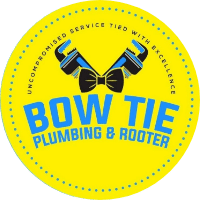














Demand vs. Desire In Marketing
Navigating The Ebbs & Flows Of Customer Need
Sometimes you are so busy you can’t see straight. Sometimes all you can see is an office full of people who want to know why the phones aren’t ringing.
The good news is that you can manage the highs and lows to distribute your work more evenly if you understand this cycle. Today, our marketing experts take a deep dive into demand vs. desire, and how to create one where there is only the other.
You Manage DEMAND
Demand-based marketing reacts to existing needs. It provides solutions for customers who are actively looking.
When demand is high, pay-per-click ads are a great way to get work. The cost per acquisition is usually low at this time and these ads will keep your schedule full.
“These are the days a business owner loves,” smiles Mark Sherwin, President and Co-Founder of LeadsNearby. “Every choice feels right and your business is humming along. But, understanding the demand vs. desire cycle can still help you during this time.”
- Prioritizing work when you’re busy is a good way to build a bridge over your shoulder season.
Shawn Henson is the Co-Founder of Gray Wolf Strategies, a business coaching company located in the Tampa area. Shawn says, “I tell people to keep a certain amount of your day open for big-ticket jobs. If it’s August and someone’s AC breaks, they are going to get a new one from the first person who answers their call. If someone needs an upgrade, IAQ product, or a system tune-up, see if there’s a way that you can schedule that for the beginning of the fall.”
Shawn adds that properly planning your jobs will help you make sure you don’t miss out on high-margin work because you are out on something that has a very small ROI.
You Sell DESIRE
Desire-based marketing is about creating interest. You entice people into a product or service they might not have considered on their own.
When calls slow down, people tend to wonder what changed. They usually start asking about technical things. “They look at their SEO and say that there must be a problem with my ranking or their PPC department must have made a mistake because the leads are way down,” Mark says.
- Understand that searches have peaks and valleys like anything else.
When organic searches are down, the right marketing company knows how to create a desire for your services. “When we need to build desire, the first thing we do at LeadsNearby is dive into the data,” Mark says.
“What systems did we install 10 years ago that might be starting to fail? Are there upgrades that we recommended that people have not acted on yet? What can marketing automation tell us about this time last year?”
Mark admits that this will not equal your high demand times, but he is also quick to point out, “working the information you already have absolutely will bring your numbers up.”
To Discount Or Not To Discount…
Mark also acknowledges that some companies balk at the thought of giving out a discount because they are convinced that people will call them when they need help. However, they may be missing the big picture.
“Someone’s air conditioner breaks in the middle of the summer and it’s 105 in the shade. Can you guarantee that you’re going to be able to get to them before another company? Remember, your phones are ringing off the hook because it’s your busy time. That job might end up going to someone else. Why not take it yourself before it gets busy at a slight discount?”
While you might make slightly less on the job now, it’s better than not being able to get there when they are in need. “Plus,” Mark says, “when demand skyrockets and the phone won’t stop ringing, you have room for new clients because you maximized your existing clients ahead of time.”

Get The Most Out Of Demand AND Desire
Shawn advises clients to break down their work into 3-day segments. “When I owned a home services business,” Shawn remembers, “we had a screen right in the middle of the room showcasing our schedules so everyone could track how we were doing.”
Shawn says that before the staff left for the day, the techs should know that tomorrow was 80% booked.
“You want to leave some room in your day for emergency calls, but filling tomorrow was always the biggest concern. We also made sure that we directed work one day out and two days out. Ideally, those days would be 50% and 25% booked by the end of the day, respectively.”
Looking at their jobs through this lens helped ensure that the work was distributed in the way that best served the company. “Now, we’re not just running around doing whatever comes up and hoping it works for our bottom line.”
Shawn also says that when the 3-day board showed that they were not meeting their scheduling goals, it let the team know how much effort needed to be put into building desire.
This sentiment dovetails with something that Mark says time and time again. “You can’t think you’re going to magically get calls when you need them. You have to work ahead to make sure you stay on track.”
Understanding demand vs. desire will help you know where to put your efforts to make sure that you stay ahead of the game.
Glossary of Terms
-
Cost Per Acquisition (CPA)
- The average cost of getting a new customer through advertising or marketing efforts.
-
Demand vs. Desire Cycle
- This refers to understanding when customers have an immediate need for your services (demand) versus when they may want or be interested in your services without urgency (desire).
-
Pay-Per-Click Ads (PPC)
- Online ads that charge you every time someone clicks on them, helping increase visibility for your business.
-
Marketing Automation (MA)
- The use of automated systems to send marketing messages based on customer data and behavior, helping businesses stay connected with their audience efficiently.
-
Search Engine Optimization (SEO)
- A strategy to improve your website’s visibility in search engine results, making it easier for potential customers to find you organically (without paid ads).
-
Organic Searches
- Searches that users conduct without clicking on paid ad,s helping them find relevant websites naturally based on keywords.
-
Customer Acquisition Cost
- Another term for CPA, this is the average amount spent to gain each new customer.
-
High-Margin Work
- Jobs or services that bring in higher profits compared to other types of work, contributing more to a business’s bottom line.
-
Brand
- The image and values that represent your business and help distinguish it from competitors in the minds of customers.
-
Marketing Data
- Information about customer behavior, preferences, and demographics that can help improve marketing strategies.
The right marketing company is here to help you see what’s coming and get you in a position to handle it. If you don’t have someone helping clear the way for you then call to talk about your marketing strategy—or contact us online.


